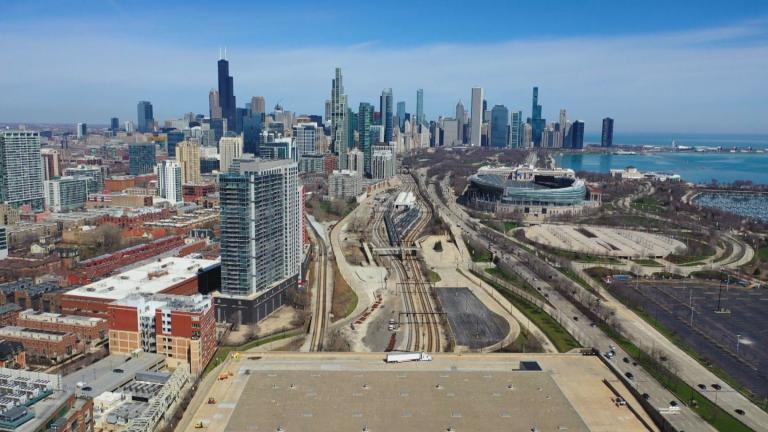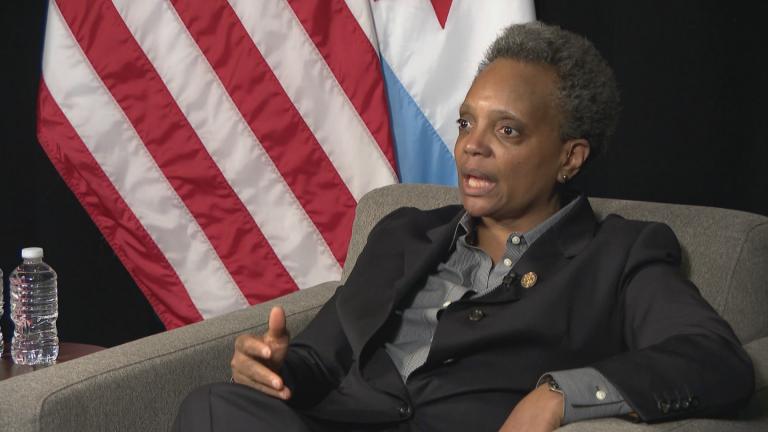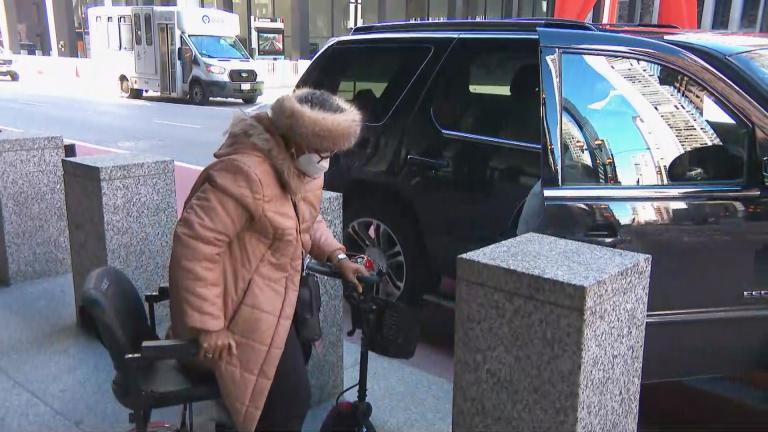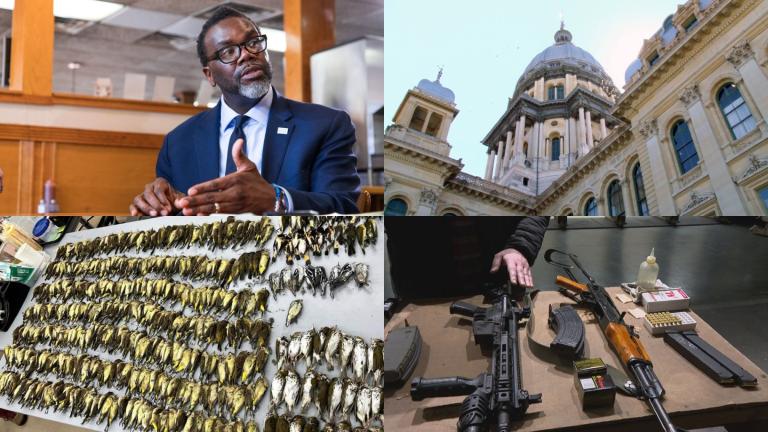Video: Amanda Kass, Emma Tai and Laurence Msall join “Chicago Tonight” to explain what the budget shortfall means for Chicagoans. (Produced by Paul Caine)
Chicago is facing an uncertain financial future as Mayor Lori Lightfoot prepares to detail how she plans to close a projected budget deficit of $733 million in 2022, budget experts told “Chicago Tonight” on Thursday.
While Lightfoot called the city’s 2021 spending plan the city’s “pandemic budget,” she said Chicago was ready to declare its 2022 spending plan a “recovery budget.”
“The big challenge is we don’t know what’s going to happen next,” said Laurence Msall, the executive director of the Civic Federation, a government budget watchdog group. “We are not out of this pandemic. The economic recovery has not been complete.”
Significant uncertainty remains in the hospitality, tourism and convention sectors of Chicago’s economy, Msall said.
But despite that uncertainty, Msall said there is no doubt that Chicago is in a better position now than it was a year ago when the city’s projected budget deficit for 2021 was $1.2 billion because of the economic catastrophe driven by the COVID-19 pandemic.
That is due to the American Rescue Plan, signed into law by President Joe Biden in March, that will send $1.9 billion in federal relief funds to Chicago, Msall said.
A fierce political battle is brewing over how to spend those funds, with Mayor Lori Lightfoot proposing to spend 40% of those funds to cover the cost of providing city services and paying city workers during the pandemic and make up for revenue lost during the pandemic.
Msall said that made sense, but Emma Tai, the executive director of United Working Families, a progressive political group that backs a plan that has failed to get a vote by the Chicago City Council to send direct aid to Chicagoans struggling to stay afloat amid the pandemic.
That proposal would expand city funding for child care, reopen public mental health clinics, eliminate debt from unpaid water bills and fund programs to shelter unhoused Chicagoans.
“These are the services that people desperately need and the fact that it is languishing in Budget Committee is unconscionable,” Tai said.
In addition to the pandemic, the city’s 2022 budget will also be pinched by soaring pension payments, as the city faces an estimated bill of $2.3 billion for its four funds, according to budget projections released Wednesday, an increase of $255 million.
In addition, the city needs an additional $275 million to send retroactive pay increases to Chicago police officers as called for in the tentative agreement reached last month with the Fraternal Order of Police Lodge 7. The rank-and-file has yet to ratify that agreement, which also must be approved by the Chicago City Council.
That means the city is not in a position to create new programs that will require ongoing expenditures, despite the federal relief package, Msall said.
The city plans to refinance $1 billion in debt to generate $250 million in savings to cover the bulk of the cost of retroactive pay increases for police officers, said Chicago Chief Financial Officer Jennie Huang Bennett.
However, budget expert Amanda Kass, associate director of the Government Finance Research Center at the University of Illinois at Chicago, said it was unclear if that refinancing would generate such a large amount of savings.
“I have a lot of questions,” Kass said.
Msall said he was pleased the mayor plans to cancel plans borrow another $500 million, as called for by the city’s 2021 budget because of the federal relief package but wanted to make sure the city had truly decided not to return to the days of scoop-and toss, a budget-stretching tactic reviled by fiscal watchdogs as a costly gimmick. That plan would have added millions of dollars in interest costs to the city’s expenses — much like an individual who uses a high-interest credit card to pay for groceries but only makes the minimum monthly payment, allowing debt to accumulate.
Tai said the City Council use take the cushion provided by the federal relief package as “an opportunity to meaningfully invest in root cause solutions to violence.”
Lightfoot is set to introduce her detailed proposal for the city’s 2022 spending plan in mid-September.








